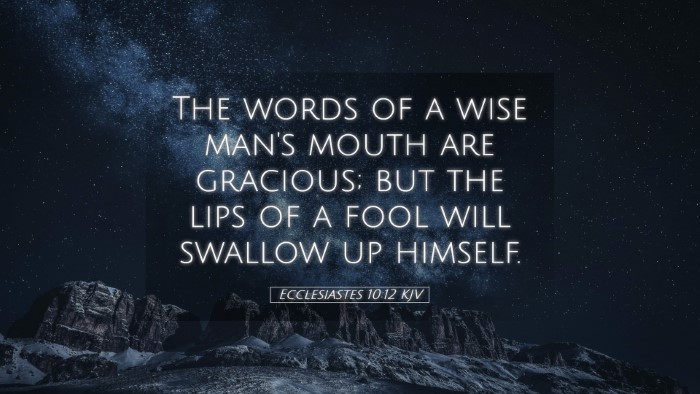Old Testament
Genesis Exodus Leviticus Numbers Deuteronomy Joshua Judges Ruth 1 Samuel 2 Samuel 1 Kings 2 Kings 1 Chronicles 2 Chronicles Ezra Nehemiah Esther Job Psalms Proverbs Ecclesiastes Song of Solomon Isaiah Jeremiah Lamentations Ezekiel Daniel Hosea Joel Amos Obadiah Jonah Micah Nahum Habakkuk Zephaniah Haggai Zechariah MalachiVerse
Ecclesiastes 10:1 Ecclesiastes 10:2 Ecclesiastes 10:3 Ecclesiastes 10:4 Ecclesiastes 10:5 Ecclesiastes 10:6 Ecclesiastes 10:7 Ecclesiastes 10:8 Ecclesiastes 10:9 Ecclesiastes 10:10 Ecclesiastes 10:11 Ecclesiastes 10:12 Ecclesiastes 10:13 Ecclesiastes 10:14 Ecclesiastes 10:15 Ecclesiastes 10:16 Ecclesiastes 10:17 Ecclesiastes 10:18 Ecclesiastes 10:19 Ecclesiastes 10:20

